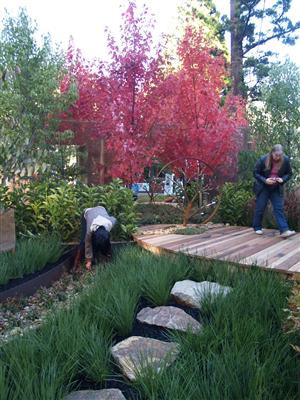
I want a qualification in horticulture but don't want to specialise at this stage
This course provides a broad based foundation to allow you to adapt to and work in different sectors of the industry, as a technician, business owner, consultant, etc. This broadens your work opportunities in horticulture.
Expand you career opportunities with generalist horticultural training
Horticultural staff need to have a strong foundation in both science and plants. They need to know:
- What affects plant growth (soils, nutrition, water, temperature, pests etc.)
- Cultural Techniques (propagation, pruning, planting, shelter, etc.)
- Plant Knowledge (plant family characteristics, classification system, etc.)
This course is internationally accredited through I.A.R.C